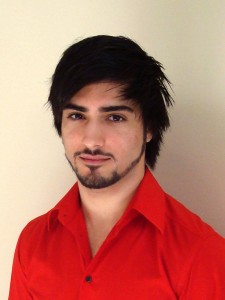
About the author: Sassan Sangsari is a VFMP student in the class of 2017. His passion for global health stems from his background in Infectious Diseases and Philosophy.
Ever wondered why some medicines are so expensive when they enter the market? After all, manufacturing the pills usually costs pennies. The answer, in short, is patent-protected mark-ups. The reality of releasing a new drug on the market is quite daunting. The whole process, from drug discovery, development, to commercialization, can take over 10 years and cost $1 billion. No company would invest so much time and so many resources unless they anticipated making a lot of profits down the road. With patents that enable jacking up prices by holding a 20-year monopoly over the production of a drug, there is sufficient incentive for the industry to keep innovating new drugs.
But the patent-as-innovation incentive comes with many problems, as it results in a mismatch between innovation and global health priorities. Instead of focusing research & development efforts on diseases that affect poor countries, such as malaria or tuberculosis, it makes more economic sense to focus on less life-threatening developed country ailments like erectile dysfunction or male baldness.
Last summer I became involved in a project that is trying to tackle this structural problem with an ingenious proposal. The Health Impact Fund is a remarkable and impressive endeavour, advised by some of the greatest minds in global health and human development. The campaign is spearheaded by philosophy professor Thomas Pogge from Yale University. The Health Impact Fund (HIF) is a proposal to implement a pay-for performance scheme to motivate pharmaceutical companies to focus research and development towards essential medicine. All pharmaceutical firms worldwide could register a new medicine with the HIF by providing their drug at cost anywhere it is needed. In exchange for foregoing the normal profits from drug sales, the firms would be rewarded based on the HIF’s assessment of the actual global health impact of the drug. In other words, the more a drug actually improves patients’ health (by reducing morbidity and mortality), the more profit the innovator stands to make.
Funding for the HIF would have to come from an intergovernmental agreement. An initial pool of money of $6 billion a year is estimated to send out a strong enough signal to pharmaceutical firms and attract their attention for a novel profit opportunity. Though this may sound like a lot of money, it is easily affordable if each developed country would agree to give as little as 0.03% of their gross national income. Measured in lives saved, the global tax payer would certainly get a lot of bang for their buck.
As an intern for Thomas Pogge and his team, I have been helping prepare documents related to grants and conferences. The future of the HIF looks very bright as we are embarking on the very first pilot projects in which we field test the health impact measurement in the real population. Personally, I think the HIF is an ingenious way to address pressing social concerns with pragmatic market principles. Furthermore, the HIF is politically very achievable, as it draws attention to neglected tropical diseases that are endemic to third world countries by means of a business model, not charity. The HIF offers an analysis without villains, a remedy without losers, and a practical path to fundamental reform.
For more information, visit healthimpactfund.org.
Thomas Pogge also provided a neat TED talk summarizing the basic design of the HIF:
http://www.ted.com/talks/thomas_pogge_medicine_for_the_99_percent.html